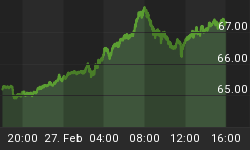Global automakers are going all-in on electrification with plans to spend a combined $300 billion on EVs over the next decade, according to a Reuters analysis.
The rush towards EVs comes as environmental and climate regulations begin to tighten around the world, while technological improvements have made EVs cheaper than ever.
Among global automakers, Volkswagen has the most ambitious vision. VW, the world’s largest automaker by sales, announced plans in December to spend $34 billion on e-mobility initiatives and $57 billion on battery procurement. The combined $91 billion in planned spending on EVs over the next decade is unmatched by any other global car company. VW will unveil 50 battery electric models by 2025, along with 30 hybrid election models. And over time, the Germany automaker will offer electric versions of all of its 300 models.
The EV push comes at a tricky time for the global auto industry, which has recently run into trouble. Overall auto sales screeched to a halt in China last year, a major sign of an economic slowdown. As the world’s largest car market, the 6 percent contraction in sales in China in 2018 has inflicted economic pain on automakers around the globe. According to RBC Capital Markets, the global auto industry saw sales dip by 2.9 percent in the third quarter of 2018, followed by a 4 percent decrease in the fourth quarter. That marked the first time global auto sales fell in two consecutive quarters since 2009 during the depths of the financial crisis. Goldman Sachs predicts that car sales in China will decline by another 7 percent this year as the economy slows and the effects of the trade war linger. Related: China’s Souring Economy Drags Down Global Equities
However, within that contraction is a notable development. Even as overall car sales sink, the sale of EVs and hybrid vehicles in China is expected to jump by a third to 1.6 million, according to Bloomberg and the China Association of Automobile Manufacturers. In fact, China is aggressively shifting towards EVs, and the fact that it will attract close to half – roughly $135 of the $300 billion in planned spending on EVs over the next decade – is clear evidence that China has become a leader in electrification. China has a mix of state-enforced mandates, credits and incentives that have the combined effect of accelerating EV adoption.
This two-track trend – surging sales of EVs but weak overall sales of cars – is also unfolding elsewhere. Sales have also been stagnant in Europe and the United States. In the U.S., motorists have abandoned passenger sedans and instead have shifted back towards heavier SUVs, egged on by cheap gasoline prices. The shifts in consumer tastes have led to disruption for car companies. GM announced a series of plant closures related to a slowdown in sales, particularly for smaller passenger vehicles.
At the same time, even as sales of EVs are still small, they are rising quickly, surging more than 80 percent in the U.S. last year.
But we are still in the early stages of this energy transition. The New York Times reports on how EVs will be a point of particular focus at the North American International Auto Show in Detroit this week. GM is set to announce a new EV model under its Cadillac brand, intended to be a luxury rival to Tesla. On Monday, VW announced plans to invest $800 million to build a new EV model at its plant in Chattanooga, Tennessee. The new initiative would add 1,000 jobs and the EV would begin production in 2022.
Related: Russia’s Post-Soviet Calendar Boy
These are just a few examples of the dozens of new EV models that are expected to be rolled out over the next few years.
In a sign of the times, even ExxonMobil is reportedly considering an investment in an electric vehicle recharging infrastructure company. That may not seem like a bombshell news report, but it is notable because Exxon has been one of the most conservative oil majors in regards to the clean energy transition. Some of its competitors, including Royal Dutch Shell, BP and Total, for instance, already have their hands in electric vehicles, renewable energy or utilities in some form or another.
Exxon has steadfastly resisted this epochal transition and has stubbornly laid out a multi-decade oil and gas vision. As such, a small foray into EV infrastructure, as trivial as it might seem, is evidence that even the most conservative oil executives see the writing on the wall.
By Nick Cunningham, Oilprice.com
More Top Reads From Safehaven.com
















